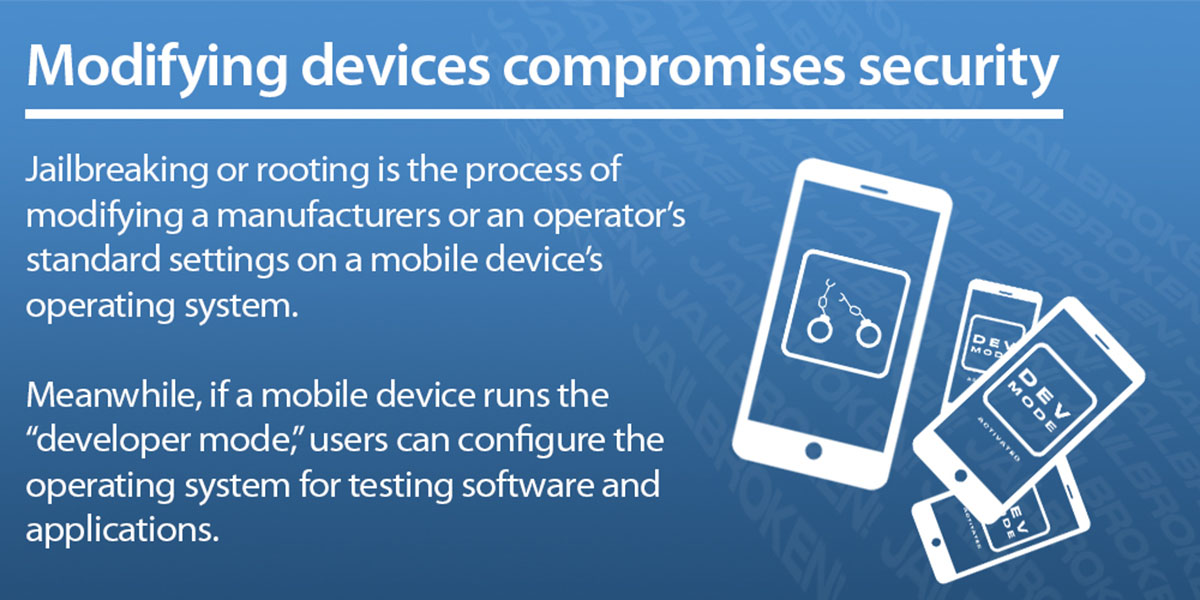Home>Finance>How To Remove Hard Inquiries From Credit Reports


Finance
How To Remove Hard Inquiries From Credit Reports
Modified: March 4, 2024
Learn how to remove hard inquiries from your credit report and improve your finances with these helpful tips and strategies.
(Many of the links in this article redirect to a specific reviewed product. Your purchase of these products through affiliate links helps to generate commission for LiveWell, at no extra cost. Learn more)
Table of Contents
- Introduction
- What are Hard Inquiries?
- Understanding the Impact of Hard Inquiries on Credit Scores
- How Long do Hard Inquiries Stay on Credit Reports?
- Why Remove Hard Inquiries from Credit Reports?
- Step-by-Step Guide to Removing Hard Inquiries from Credit Reports
- Method 1: Dispute with Credit Reporting Agencies
- Method 2: Request Validation from the Creditor
- Method 3: Negotiate with the Creditor to Remove the Inquiry
- Method 4: Hire a Credit Repair Company
- Tips to Maximize Results When Removing Hard Inquiries
- Conclusion
Introduction
When it comes to managing your finances, your credit score plays a crucial role. Lenders often rely on credit reports to assess your creditworthiness and determine whether to grant you a loan or credit. One factor that can impact your credit score is the presence of hard inquiries on your credit report.
Hard inquiries occur when you apply for new credit, such as a credit card, auto loan, or mortgage. Each time you submit an application, the lender or creditor will conduct a hard inquiry to assess your creditworthiness. While a single hard inquiry may have a minimal impact on your credit score, multiple inquiries within a short period can potentially lower your score.
In this article, we will delve into the topic of hard inquiries on credit reports. We will explore their significance, understand how they impact credit scores, and discuss the methods to remove them from your credit report. Whether you are looking to improve your credit score or simply want to clean up your credit report, understanding how to remove hard inquiries is crucial to achieving your financial goals.
What are Hard Inquiries?
Hard inquiries, also known as hard pulls, are records of the credit checks performed by lenders or creditors when you apply for credit. When you submit an application to borrow money or open a new line of credit, the lender will review your credit history to assess your creditworthiness.
During this assessment, the lender will request a copy of your credit report from one or more credit bureaus. This request is known as a hard inquiry. Hard inquiries provide lenders with a snapshot of your credit history and allow them to evaluate your financial responsibility and ability to manage additional debt.
It’s important to note that not all credit checks impact your credit score. There are two types of inquiries: hard inquiries and soft inquiries. Soft inquiries occur when you request a copy of your own credit report or when a non-lender entity, such as a potential employer or an insurance company, reviews your credit report for verification purposes. Soft inquiries do not affect your credit score.
On the other hand, hard inquiries can have an impact on your credit score. Each hard inquiry can cause a temporary dip in your credit score, typically by a few points, depending on various factors such as the number of recent inquiries and your overall credit history.
It’s important to be mindful of the number of hard inquiries you have on your credit report, as multiple inquiries within a short period can signal to lenders that you might be desperate for credit or experiencing financial difficulties. This can raise concerns about your ability to responsibly manage additional credit, potentially impacting future credit approvals or loan terms.
Understanding the nature of hard inquiries and their impact on your credit report is key to managing your credit effectively and maintaining a healthy credit score.
Understanding the Impact of Hard Inquiries on Credit Scores
Hard inquiries are an essential part of the credit evaluation process, but they can impact your credit score in several ways. Understanding how hard inquiries affect your credit score is crucial for managing your financial health. Here are a few key points to consider:
- Credit Score Decrease: Each hard inquiry can potentially lower your credit score by a few points. The exact impact varies depending on factors such as your overall credit history, the number of recent inquiries, and the presence of any other negative information on your credit report.
- Multiple Inquiries: If you have multiple hard inquiries within a short period, it can raise a red flag for lenders. It may suggest that you are actively seeking additional credit, which can make them wary of your financial stability and ability to manage multiple debt obligations.
- Time Consideration: The impact of hard inquiries on your credit score is typically temporary. While the initial dip may be noticeable, the effect diminishes over time. Most credit scoring models consider inquiries from the past 12 to 24 months, with a stronger emphasis on recent inquiries.
- Applying for New Credit: If you have a limited credit history or a lower credit score, applying for multiple new credit accounts within a short period can have a more significant impact on your credit score. Lenders may perceive this as an increased risk, potentially resulting in higher interest rates or limited credit options.
- Positive Impact: It is important to note that while hard inquiries may temporarily lower your credit score, responsibly managing new credit accounts can have a positive impact in the long run. Making timely payments and maintaining low credit utilization on new accounts can help rebuild and improve your credit score over time.
Overall, understanding the impact of hard inquiries on your credit score allows you to make informed decisions when applying for credit. By managing the number of inquiries and being mindful of their potential effects, you can maintain a healthy credit score and increase your chances of future credit approvals.
How Long do Hard Inquiries Stay on Credit Reports?
Hard inquiries can remain on your credit report for a certain period of time, and understanding this timeframe is crucial for managing your credit and planning your financial future.
In general, hard inquiries stay on your credit report for about two years. During this time, they are visible to lenders and can impact your credit score. However, it’s important to note that the impact of hard inquiries on your credit score diminishes over time, and their significance decreases as they age.
Typically, the most recent hard inquiries have the greatest impact on your credit score. As time passes and newer credit information appears on your report, the significance of older inquiries lessens. After about a year, the impact of a hard inquiry on your credit score becomes minimal.
It’s worth noting that when you review your own credit report or a lender makes a soft inquiry, it does not impact your credit score, and these inquiries are not visible to other creditors. Soft inquiries, such as checking your credit score or background checks by employers, are not included in the two-year timeframe for hard inquiries.
While hard inquiries do remain on your credit report for a specific period, the good news is that their impact on your credit score decreases over time. This allows you to rebuild your credit and demonstrate responsible financial behavior, even if you have had multiple inquiries in the past.
Remember that it’s essential to monitor the number of hard inquiries on your credit report and be selective when applying for new credit. Being mindful of the timing and frequency of credit applications can help you minimize the impact of hard inquiries on your credit score and maintain a healthy financial profile.
Why Remove Hard Inquiries from Credit Reports?
Removing hard inquiries from your credit report can have various benefits for your overall financial health. Here are a few reasons why you should consider removing hard inquiries:
- Improve Credit Score: Hard inquiries can have a temporary negative impact on your credit score. By removing them, you can potentially improve your credit score and increase your chances of getting approved for future credit.
- Enhance Creditworthiness: Lenders consider the number of hard inquiries on your credit report when assessing your creditworthiness. By removing unnecessary inquiries, you can present a more favorable credit profile to lenders, increasing your chances of obtaining better interest rates and loan terms.
- Increased Approval Chances: If you have too many recent hard inquiries on your credit report, it can raise concerns for lenders and make them hesitant to approve your credit applications. By removing unnecessary inquiries, you can improve your chances of getting approved for new credit.
- Prevent Further Damage: If you have already experienced a dip in your credit score due to hard inquiries, removing them can prevent further damage and help stabilize your credit standing. It allows you to take control of your credit and protect your financial reputation.
- Prepare for Major Financial Decisions: Whether you’re planning to buy a home, get a car loan, or pursue other major financial goals, having a clean credit report without unnecessary inquiries can position you for success. It shows lenders that you are financially responsible and committed to maintaining a healthy credit profile.
By removing hard inquiries from your credit report, you can improve your creditworthiness, increase your chances of being approved for credit, and enhance your overall financial standing. Taking the necessary steps to remove unnecessary inquiries demonstrates your commitment to responsible credit management and can lead to greater financial opportunities in the future.
Step-by-Step Guide to Removing Hard Inquiries from Credit Reports
If you have identified any inaccurate or unnecessary hard inquiries on your credit report, you can take steps to have them removed. Follow this step-by-step guide to start the process:
- Review Your Credit Reports: Obtain copies of your credit reports from the three major credit bureaus – Experian, Equifax, and TransUnion. Carefully review each report to identify any inaccurate or unauthorized hard inquiries.
- Gather Documentation: Gather supporting documents that can prove the inaccuracies of the inquiries. This can include copies of correspondence, application denials, or any other relevant documentation.
- Dispute with Credit Reporting Agencies: Write a formal dispute letter to the credit reporting agencies (CRAs) that are reporting the inaccurate inquiries. Clearly explain the errors and provide the supporting documentation. The CRAs have 30 days to investigate your dispute and respond to you.
- Request Validation from the Creditor: If the CRAs do not remove the inquiries or if the inquiries are legitimate but you believe they were not authorized, you can directly contact the creditors who made the inquiries. Send a verification letter requesting them to validate the inquiries and provide proof of your authorization.
- Negotiate with the Creditor: In some cases, you may be able to negotiate with the creditor to have the hard inquiry removed. Offer to pay off any outstanding debts or reach a settlement agreement in exchange for the removal of the inquiries. Make sure to get any agreements in writing.
- Hire a Credit Repair Company: If you are facing challenges in removing the hard inquiries yourself, you can consider hiring a reputable credit repair company. These companies have expertise in navigating the credit dispute process and can assist you in removing inaccuracies from your credit report.
Remember to keep detailed records of all your communication, including copies of letters and any responses you receive. Be patient throughout the process, as it may take some time to resolve the issues and see the desired changes on your credit report.
It’s important to note that it is illegal to attempt to remove accurate and authorized hard inquiries from your credit report. However, if you encounter any inaccuracies or unauthorized inquiries, taking action to have them removed can help improve the overall accuracy and fairness of your credit report.
Method 1: Dispute with Credit Reporting Agencies
Disputing inaccurate or unauthorized hard inquiries with the credit reporting agencies (CRAs) is the first step in removing them from your credit report. Follow these steps to successfully dispute the inquiries:
- Document the Inaccurate Inquiries: Identify the specific hard inquiries on your credit report that you believe are inaccurate or unauthorized. Take note of the date, the name of the creditor, and any other relevant details.
- Prepare a Dispute Letter: Write a formal dispute letter to each of the three main credit reporting agencies – Experian, Equifax, and TransUnion. Clearly state the inaccurate inquiries, explain the reasons why they are incorrect, and provide any supporting documentation you have. Make sure to include your name, address, and account information to help the agencies identify your file.
- Send the Dispute Letter: Send the dispute letters via certified mail with a return receipt requested. This allows you to have proof of receipt and ensures that the credit reporting agencies process your dispute within the legally required timeframe.
- Review the Investigation Results: The credit reporting agencies have 30 days to investigate your dispute and respond to you. They will contact the creditors who made the inquiries and request verification of the accuracy of the inquiries. Review the investigation results carefully to see if the inquiries have been removed or updated on your credit report.
- Follow-Up if Necessary: If the credit reporting agencies do not remove the inaccurate inquiries or fail to respond within the 30-day timeframe, you can send a follow-up letter requesting further investigation. Be persistent in ensuring that the inaccuracies are addressed and corrected.
It’s important to note that if the credit reporting agencies determine that the inquiries are accurate and authorized, they will not remove them from your credit report. However, if you strongly believe the inquiries are incorrect or unauthorized, you have the right to initiate the dispute process and work towards their removal.
Remember to keep copies of all correspondence and documentation related to the dispute. Maintaining organized records will help you track the progress of your dispute and provide evidence if further action is necessary.
Disputing inaccurate inquiries with the credit reporting agencies is an important method to remove hard inquiries from your credit report. It allows you to take control of your credit information and ensures that your credit report accurately reflects your creditworthiness.
Method 2: Request Validation from the Creditor
If the credit reporting agencies (CRAs) do not remove the inaccurate or unauthorized hard inquiries from your credit report, you can directly contact the creditors who made the inquiries. By requesting validation from the creditor, you can challenge the legitimacy of the inquiries. Follow these steps to request validation:
- Gather Information: Compile the necessary details about the inaccurate or unauthorized inquiries, including the name of the creditor, the date of the inquiry, and any other relevant information you have.
- Prepare a Validation Request Letter: Write a formal validation request letter to the creditor. Explain that you are disputing the accuracy and legitimacy of the inquiries on your credit report. Request that they provide documentation to validate the inquiries, such as a signed application or proof of authorization, within a specified timeframe.
- Include Supporting Documentation: Attach any supporting documentation you have that proves the inquiries are inaccurate or unauthorized. This can include copies of correspondence, application denials, or any other relevant proof.
- Send the Validation Request: Send the validation request letter to the creditor via certified mail with a return receipt requested. This ensures that you have proof of receipt and allows you to track the delivery. Keep a copy of the letter and the mailing receipt for your records.
- Review the Response: The creditor has a certain period of time, typically 30 days, to respond to your validation request. Once you receive their response, carefully review it to see if they provide the requested documentation to validate the inquiries.
- Take Further Action if Necessary: If the creditor fails to provide adequate validation or does not respond within the specified timeframe, you can escalate the matter further. Consider filing a complaint with the Consumer Financial Protection Bureau (CFPB) or consulting with a consumer rights attorney to explore your options.
It’s important to note that creditors are required by law to provide documentation that validates the accuracy of the inquiries. If they are unable to provide such documentation, they should remove the inquiries from your credit report. However, if the creditor validates the inquiries and provides evidence of their legitimacy, the credit reporting agencies will not remove them.
Keep meticulous records of all communication, including copies of letters and any responses you receive. This helps to keep track of the progress of your validation request and serves as evidence in case further action is necessary.
Requesting validation from the creditor is an effective method to challenge the accuracy and legitimacy of hard inquiries on your credit report. By exercising your rights as a consumer, you can work towards the removal of inaccurate or unauthorized inquiries and maintain an accurate credit report.
Method 3: Negotiate with the Creditor to Remove the Inquiry
If you have been unsuccessful in removing inaccurate or unauthorized hard inquiries through disputing or validation requests, another option is to negotiate directly with the creditor who made the inquiries. By reaching out to the creditor and discussing your situation, you may be able to come to an agreement to have the inquiries removed. Follow these steps to negotiate with the creditor:
- Identify the Creditor: Determine which creditor is responsible for the hard inquiries on your credit report. Make a note of their contact information, including their phone number and mailing address.
- Prepare a Persuasive Letter: Write a well-crafted letter to the creditor explaining your situation and expressing your desire to have the inquiries removed. Clearly outline the reasons why you believe the inquiries are inaccurate or unauthorized. Be polite, concise, and factual in your letter.
- Offer a Resolution: In your letter, propose a resolution to the issue that will benefit both parties. This can include offering to pay off any outstanding debts, settling the account, or committing to make regular payments. Explain how removing the inquiries will enable you to improve your creditworthiness and maintain a positive relationship with the creditor.
- Request a Written Agreement: If the creditor agrees to remove the inquiries, request a written agreement that outlines the terms of the agreement, including the removal of the inquiries from your credit report. Make sure to review the agreement carefully before signing or making any payments.
- Follow Up Regularly: After reaching a verbal or written agreement, follow up regularly with the creditor to ensure that they are taking the necessary steps to remove the inquiries from your credit report. Keep records of all your communication and any payments made.
- Monitor Your Credit Report: Regularly monitor your credit report to confirm that the agreed-upon changes have been made. It may take some time for the credit reporting agencies to update your report, so be patient and persistent in checking for updates.
Successful negotiation with the creditor requires effective communication and a willingness to find a solution that works for both parties. Be prepared to present your case and demonstrate your commitment to resolving the issue. Remember to keep copies of all correspondence and documentation for your records.
While negotiating with the creditor may not always guarantee the removal of the inquiries, it is worth exploring this option as it can lead to a mutually beneficial resolution. By maintaining open lines of communication and being proactive in finding a resolution, you increase your chances of having the inquiries removed from your credit report.
Method 4: Hire a Credit Repair Company
If you’re facing challenges in removing inaccurate or unauthorized hard inquiries on your credit report, you have the option to hire a reputable credit repair company. These companies specialize in assisting individuals in improving their credit and can navigate the dispute process on your behalf. Here’s how hiring a credit repair company can help with removing hard inquiries:
- Research and Select a Reputable Credit Repair Company: Take the time to research and choose a reputable credit repair company. Look for companies with a track record of success and positive customer reviews. Ensure that they are compliant with applicable laws and regulations, such as the Credit Repair Organizations Act (CROA).
- Consultation and Credit Analysis: Once you’ve chosen a credit repair company, they will typically provide a consultation and credit analysis to assess your specific situation. They will review your credit reports, identify inaccurate or unauthorized inquiries, and develop a customized plan for dispute and removal.
- Dispute and Communication: The credit repair company will handle the dispute process on your behalf. They will draft dispute letters, gather necessary documentation, and submit disputes to the credit reporting agencies and the creditors responsible for the inquiries. The company will maintain communication and follow up with the agencies and creditors throughout the process.
- Regular Progress Updates: A reliable credit repair company will provide you with regular updates on the progress of your case. They will inform you of any responses received, changes made to your credit report, or actions taken to remove the inquiries. This allows you to stay informed and track the improvements made to your credit report.
- Expert Guidance and Support: Credit repair companies have expertise in credit laws, regulations, and dispute strategies. They can provide you with guidance and support throughout the process, answering your questions and addressing your concerns. They can also provide recommendations on steps you can take to improve your overall credit health.
- Saving Time and Effort: Hiring a credit repair company saves you the time and effort of navigating the complex dispute process yourself. They handle the administrative tasks and communication with the credit reporting agencies and creditors, allowing you to focus on other aspects of your financial life.
While hiring a credit repair company can be beneficial, it’s important to remember that not all companies operate ethically. Beware of companies that make unrealistic promises or charge exorbitant fees upfront. It’s advisable to thoroughly research and choose a reputable and trustworthy credit repair company.
Working with a credit repair company can streamline the process of removing hard inquiries from your credit report. Their expertise and resources can increase the chances of successfully disputing and removing inaccurate or unauthorized inquiries, ultimately helping you improve your credit health.
Tips to Maximize Results When Removing Hard Inquiries
When removing hard inquiries from your credit report, there are several tips and strategies you can employ to maximize your chances of success. Here are some tips to consider:
- Regularly Monitor Your Credit Report: Stay vigilant by regularly monitoring your credit report. This allows you to quickly identify any inaccurate or unauthorized hard inquiries and take immediate action to dispute them.
- Keep Detailed Records: Maintain organized records of all correspondence and documentation related to the inquiries. This includes dispute letters, validation requests, responses from credit reporting agencies and creditors, and any additional supporting evidence. These records will be crucial if you need to escalate the issue or provide evidence of your efforts.
- Review Your Rights as a Consumer: Familiarize yourself with your rights as a consumer under the Fair Credit Reporting Act (FCRA). Understanding your rights empowers you to take necessary actions and ensures that you are treated fairly in the credit reporting and dispute process.
- Be Thorough and Accurate: When writing dispute letters or validation requests, be thorough and accurate in explaining the inaccuracies or unauthorized nature of the inquiries. Provide specific information and supporting documentation to strengthen your case and increase the likelihood of a successful removal.
- Always Communicate in Writing: When corresponding with credit reporting agencies and creditors, communicate in writing whenever possible. This provides you with a paper trail and proof of your requests and efforts, making it easier to track the progress of the dispute and hold parties accountable for their actions or lack thereof.
- Be Persistent and Follow-Up: If you are not seeing the desired results, don’t give up. Follow up regularly with the credit reporting agencies and creditors to ensure that your requests are being processed and the inquiries are being removed. Be persistent in advocating for the accuracy and fairness of your credit report.
- Consider Seeking Professional Assistance: If you are encountering challenges or feeling overwhelmed by the process, consider seeking assistance from a reputable credit repair company or consulting with a consumer rights attorney. These professionals have expertise in navigating credit disputes and can provide guidance and support throughout the removal process.
- Practice Responsible Credit Management: While removing hard inquiries is important, it is equally essential to practice responsible credit management moving forward. Pay your bills on time, keep your credit utilization low, and avoid excessive credit applications. By maintaining a positive credit history, you can mitigate the impact of future inquiries and strengthen your overall creditworthiness.
By implementing these tips, you can optimize your efforts to remove hard inquiries from your credit report. Remember to stay proactive, stay patient, and stay informed throughout the process. Improving the accuracy and fairness of your credit report can have a positive impact on your financial well-being in the long run.
Conclusion
Understanding and effectively managing hard inquiries on your credit report is essential for maintaining a healthy credit profile. While hard inquiries are a normal part of the credit evaluation process, too many inquiries or inaccurate entries can negatively impact your credit score and financial well-being.
In this article, we explored what hard inquiries are and how they can impact your credit score. We discussed the timeframe in which hard inquiries stay on credit reports and the reasons why you should consider removing them. We also provided a step-by-step guide to removing hard inquiries, including disputing with credit reporting agencies, requesting validation from the creditor, negotiating with the creditor, and the option of hiring a credit repair company.
Throughout the removal process, maintaining organized records, being thorough and accurate in your communication, and staying persistent are vital. Regularly monitoring your credit report and practicing responsible credit management are also key to maintaining a positive credit history.
Remember, the goal of removing inaccurate or unauthorized hard inquiries is to present a true and accurate picture of your creditworthiness to lenders. By doing so, you can enhance your chances of obtaining credit, securing better terms, and achieving your financial goals.
While the process of removing hard inquiries can sometimes be challenging, taking proactive steps to correct inaccuracies and advocating for the fairness of your credit report is worth the effort. Stay informed, remain patient, and exercise your rights as a consumer to ensure the accuracy and transparency of your credit information.
By following the tips and strategies outlined in this article, you’re on your way to improving your credit health and making positive strides towards your financial future.














